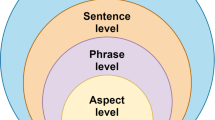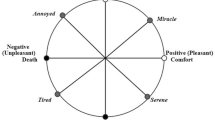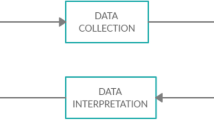Abstract
This work focuses on error analyzes from the Support Vector Machine (SVM) classification on Thai children stories at a sentence level. The construction of the Sentiment Term Tagging System (STTS) program allows the researchers to make observations and hypothesize around the areas where most anomalies occur. Three hypotheses, based on terms sentiment chosen for SVM predictions, are evidently proved to hold. In addition, a number of ways to improve the Thai sentiment classification research are suggested, including considerations to add negation into the process, add weighing scheme for different part-of-speech, disambiguate word senses, and update the Thai sentiment resource.

Similar content being viewed by others
References
Lertsuksakda R, Pasupa K, Netisopakul P (2015) Sentiment analysis on thai children stories with support vector machine. In: Proceeding of the 20th international symposium on artificial life and robotics (AROB (2015) 21–23 Jan 2015. Beppu, Japan, pp 138–142
Cortes C, Vapnik V (1995) Support-vector networks. Mach Learn 20(3):273–297
Pasupa K, Netisopakul P, Lertsuksakda R (2016) Sentiment analysis of thai children stories. Artif Life Robot 21(3):357–364
Netisopakul P, Wikaha P (2013) Speaker identification from multiple short stories without an avatar list. In: Proceeding of the 10th symposium on natural language processing (SNLP-2013), 28–30 October 2014 Phuket, Thailand, pp 1–7
Lertsuksakda R, Netisopakul P, Pasupa K (2014) Thai sentiment terms construction using the hourglass of emotions. In: Proceeding of the 6th international conference on knowledge and smart technology (KST 2014), 30–31 January 2014, Chonburi, Thailand, pp 46–50
Sudprasert S (2004) KUCut thai word segmentor [online]. http://belisan-volubilis.blogspot.be/. Accessed 16 Oct 2015
de Kok D (2014) Jitar HMM part of speech tagger [online]. https://github.com/danieldk/jitar/. Accessed 16 Oct 2015
Cambria E, Hussain A (2012) Sentic computing: techniques, tools, and applications. Springer, Dordrecht
Cambria E, Havasi C, Hussain A (2012) Senticnet 2: a semantic and affective resource for opinion mining and sentiment analysis. In: Proceeding of the 25 international Florida artificial intelligence research society (FLAIRS (2012) 23–25 May 2012. Marco Island, Florida, USA, pp 202–207
National Electronics and Computer Technology Center (2013) Lexitron dictionary [online]. http://lexitron.nectec.or.th/. Accessed 16 Oct 2015
Belisan (2013) Volubilis dictionary [online]. http://belisan-volubilis.blogspot.be/. Accessed 16 Oct 2015
Author information
Authors and Affiliations
Corresponding author
About this article
Cite this article
Netisopakul, P., Pasupa, K. & Lertsuksakda, R. Hypothesis testing based on observation from Thai sentiment classification. Artif Life Robotics 22, 184–190 (2017). https://doi.org/10.1007/s10015-016-0341-2
Received:
Accepted:
Published:
Issue Date:
DOI: https://doi.org/10.1007/s10015-016-0341-2




